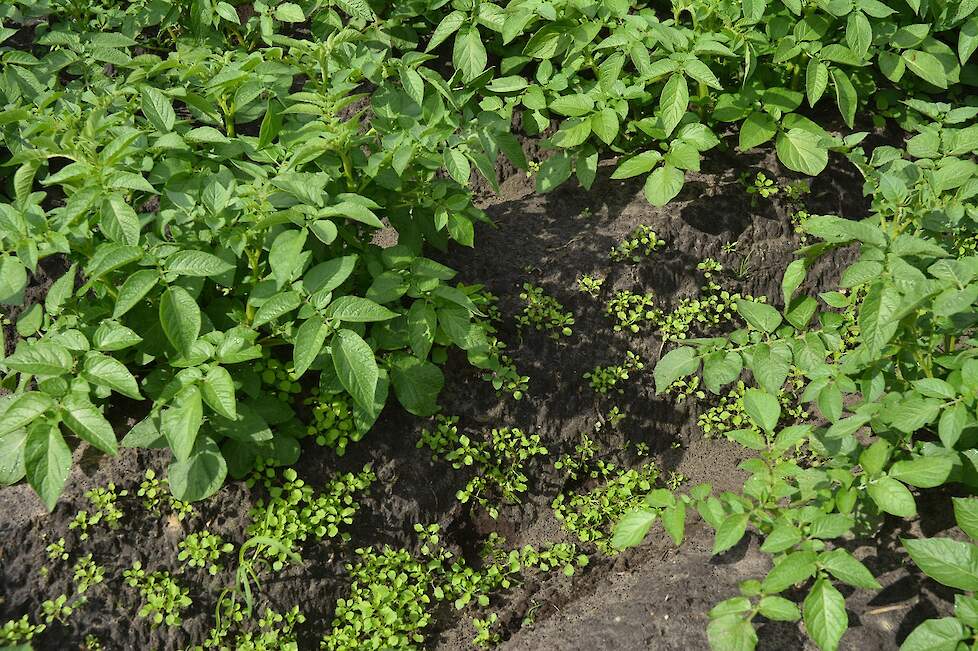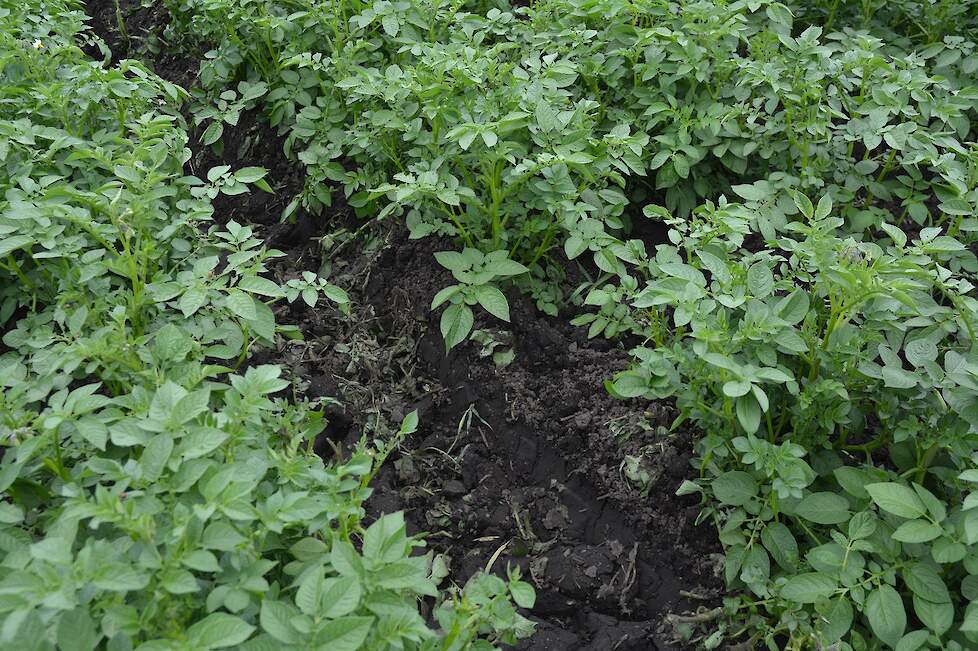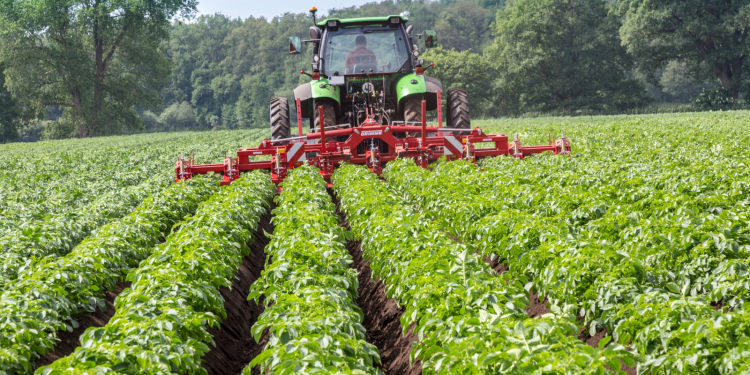Mechanical weed control in potatoes and beets is possible, but you have to be on top of it all the time. That is one of the conclusions of an ongoing field trial by research laboratory HLB.
On two test fields, near Musselkanaal (GR) and Witteveen (DR), the HLB is examining the possibilities for future-proof control of weeds in potatoes and beets. A common approach (using chemistry), an approach with half the number of sprayings with the addition of mechanical weed control and a fully mechanical approach is considered. Each test field consists of two parts; in part the ground has been plowed, the other half has been plowed.
Hit ler harrow
It is the second year that the tests have been put into practice and the differences with last year are large. “Last year it was really dry, now it’s really wet, which means that everything is different,” says Luuk Heling of HLB. In addition, last year was mainly a bit of pioneering. “We had very few machines in the field of mechanical weed control. We had to hire them and also get to know them. Now I have a Treffler harrow myself,” says Bert Horsting, arable farmer and employee at HLB.
The most important lesson of two years of field trials: the soil preparation is the basis, it must be completely in order. The soil should be flat, tamped down firmly and sufficiently crumbled. “If that is not good, you will suffer from it all season,” says Frank ter Beke, HLB advisor. “The teeth of the harrow do not grab that one weed when there is just an unevenness, it is also more difficult in cloddy soil.” In the beets this is even more important than in the potatoes.

Positively surprised
The beet test field, which was sprayed only three times, is clean. There are still some weeds in the field where only mechanical work was done. This field has been harrowed eleven times and hoeed once. Ter Beke: „You remain busy with such a field until the moment when the crop is closed. Then the weeds don’t stand a chance anymore.” Nevertheless, the three men, as well as many growers who visit the field, are positively surprised at what you can achieve with only mechanical equipment.
In the potato trial field – variety Novano – there is still quite a bit of weeds in the field where less has been sprayed. This is mainly a result of the weather conditions, Horsting says. “We should have sprayed three times by now, but because of the rain we only managed to do it once.

‘Keep the ground moving’
To keep the weed control, it is important, as the grower says, to “keep the soil moving.” Harrow before emergence, around emergence, do not hesitate to do so, but when the plants are there, harrow and fill up the soil. “The roots of the weeds must be loose in the soil, so that they cannot grow.” According to the three HLB employees, there is a big difference between conventional and organic growers. “A conventional farmer looks at which weeds are above it, an organic grower looks into the soil to see if he sees white root threads.”
A few things are important for good weed control, says Ter Beke. Timing: when should I do something. Crop status: when should I do nothing? Weather: what are or will the weather conditions be and what am I going to do with it.”
Extra effort
Most farmers want to work mechanically in their crops, says Heling. “But that extra effort and costs have to be paid for. And that is not possible now.” Because it certainly takes extra time. Horsting: “With my sprayer I reach 39 meters in one go, at a speed of 5.5 km per hour. With the 9 meter harrow I can’t go faster than 4 km per hour in these potatoes. That’s a big difference.”







